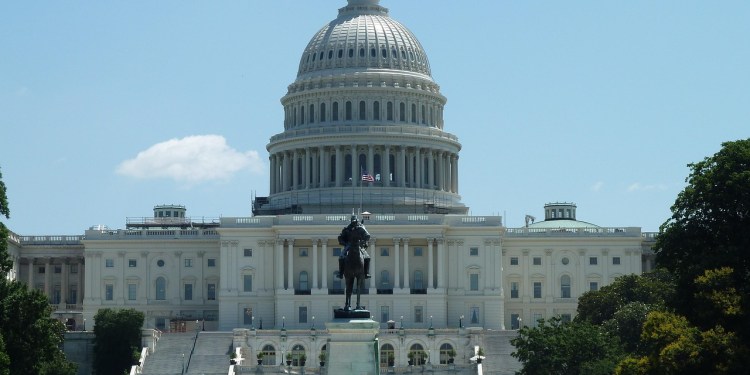The US Senate has approved the contentious budget reconciliation bill proposed by US President Donald Trump in a razor-thin 50-50 vote, with Vice President JD Vance casting the decisive tiebreaker after more than 24 hours of marathon debate.
The “One Big Beautiful Bill Act” passed despite fierce opposition from all Democrats and three Republicans, who raised concerns about healthcare cuts, artificial intelligence regulation, and wealth redistribution through tax policy.
The legislative victory for Trump comes amid significant controversy, with critics arguing the bill prioritizes corporate interests over public services. The passage sets up a return trip to the House of Representatives, where lawmakers will need to address Senate amendments before final approval.
Republican leadership faces mounting pressure to deliver on the aggressive legislative agenda of Trump while managing internal party divisions and unified Democratic opposition.

Crypto Tax Amendment
Wyoming Senator Cynthia Lummis had positioned herself as a champion for cryptocurrency tax reform during the bill’s consideration, proposing amendments to address what she characterized as “unfair tax treatment” of digital asset miners and stakers.
Her proposed changes would have eliminated double taxation issues that have long plagued the crypto industry, where participants face tax obligations both upon receiving block rewards and again when selling their digital assets.
The Lummis amendment package included several pro-crypto provisions designed to streamline tax compliance and encourage digital asset adoption. Key elements would have waived taxes on cryptocurrency transactions under $300 with an annual cap of $5,000, including stablecoin transfers.
Additionally, the proposal sought to exclude most crypto lending agreements from taxation and establish that digital assets earned through airdrops, mining, and staking would not be taxable until sold.
Despite the comprehensive nature of these proposals and Lummis’s advocacy during floor debate, none of her crypto-specific amendments appeared in the final legislation brought to vote. The exclusion represents a significant setback for the digital asset industry, which had hoped to leverage the budget reconciliation process to achieve meaningful tax reform without requiring separate legislative battles.
Political Tensions Mount
The budget debate also featured unsuccessful attempts by Democratic senators to restrict government officials from owning or promoting digital assets. The restriction would have extended to Trump family members and former government employees like Elon Musk for up to one year after their service.
Lummis strongly opposed this restriction, arguing it would “inflict serious harm on American innovation and competitiveness” and drew parallels to hypothetical internet restrictions in the technology sector’s early days.
The amendment was ultimately defeated, but its introduction highlighted ongoing tensions between Democratic concerns about conflicts of interest and Republican priorities for digital asset development.
The budget bill’s passage effectively pushes other crypto-related legislation to the back burner, despite previous momentum on several fronts. While the Senate has already passed the GENIUS Act for stablecoin regulation and various Bitcoin reserve proposals await consideration, these crypto measures could take a backseat to other spending issues on the table.





